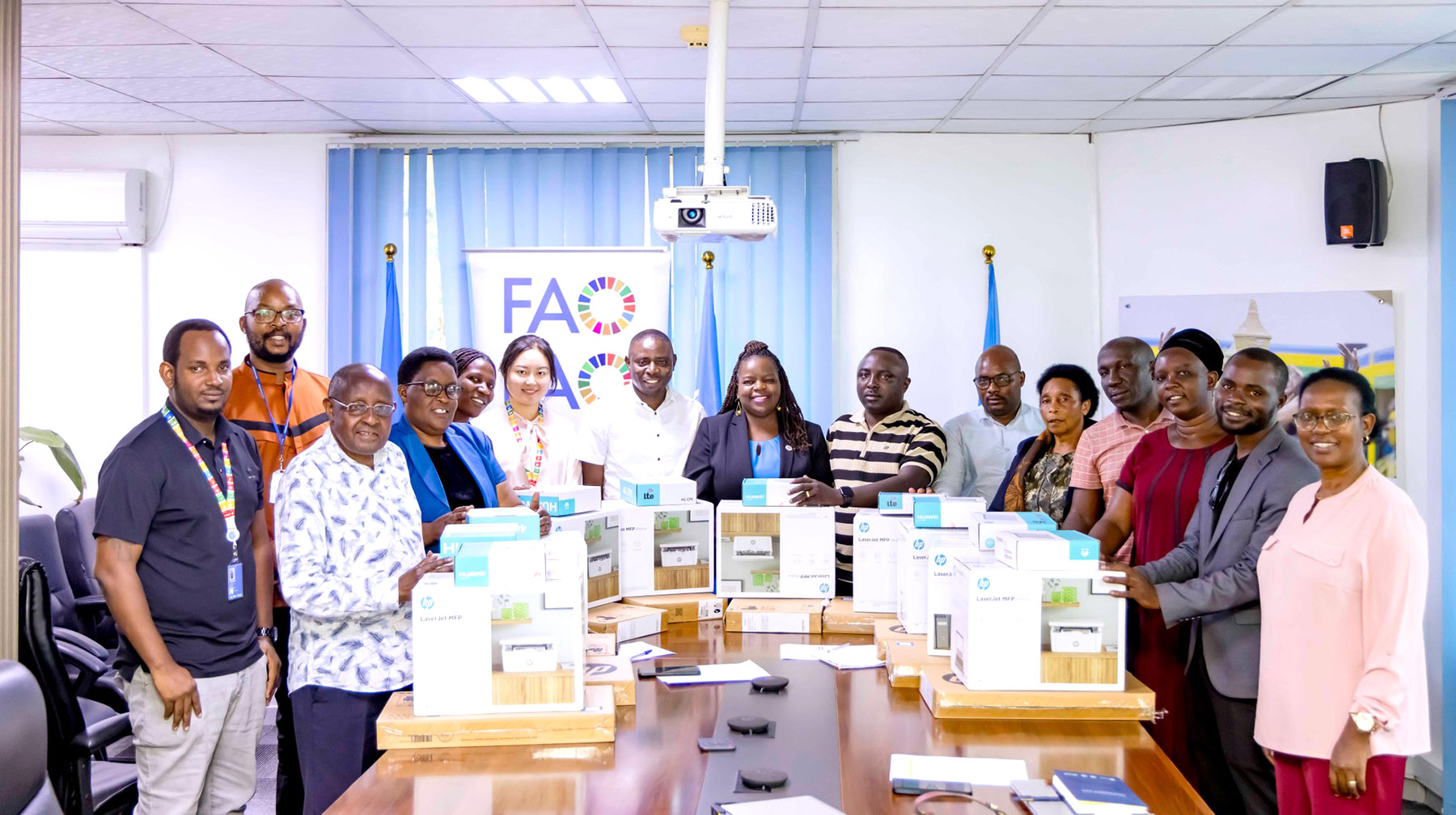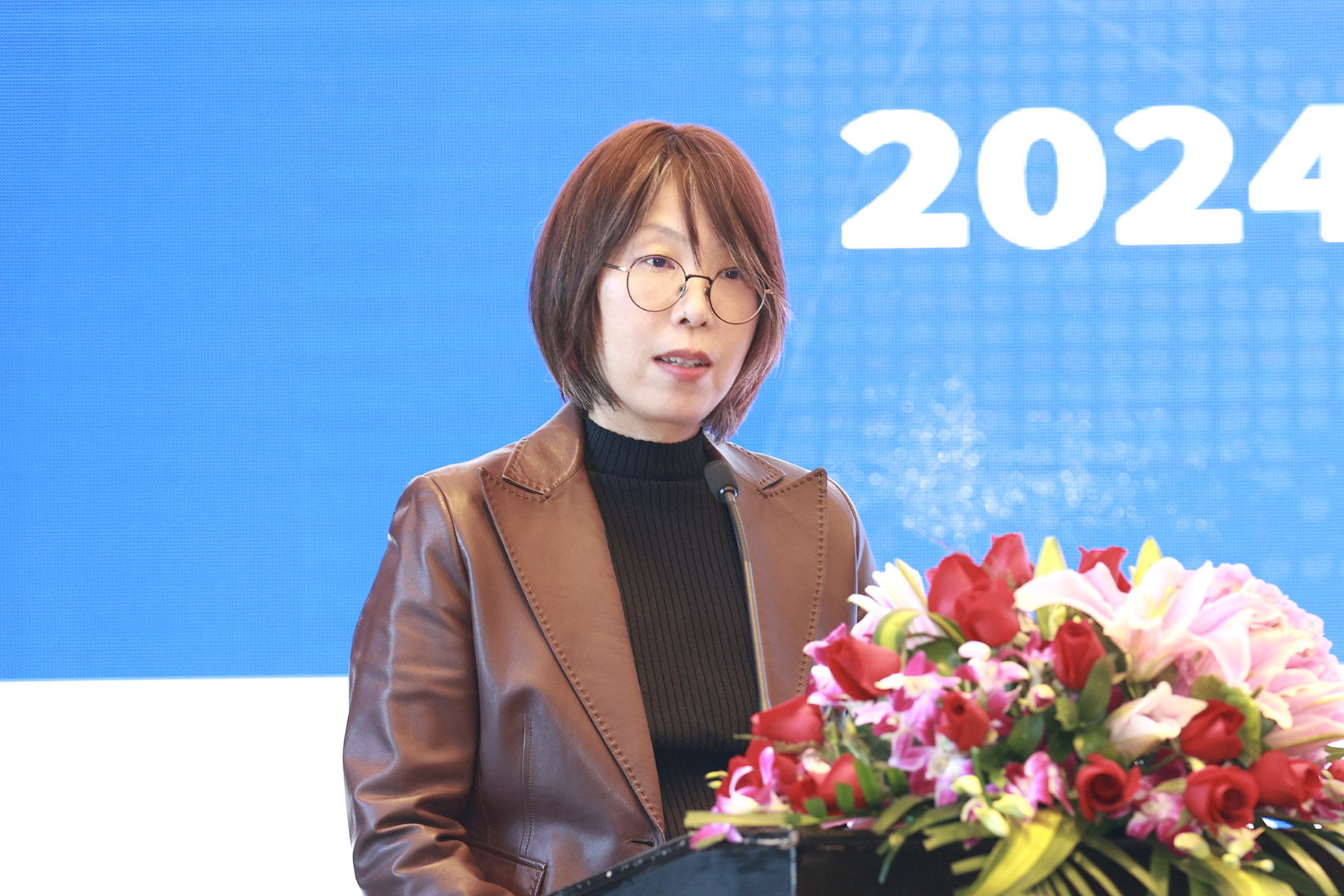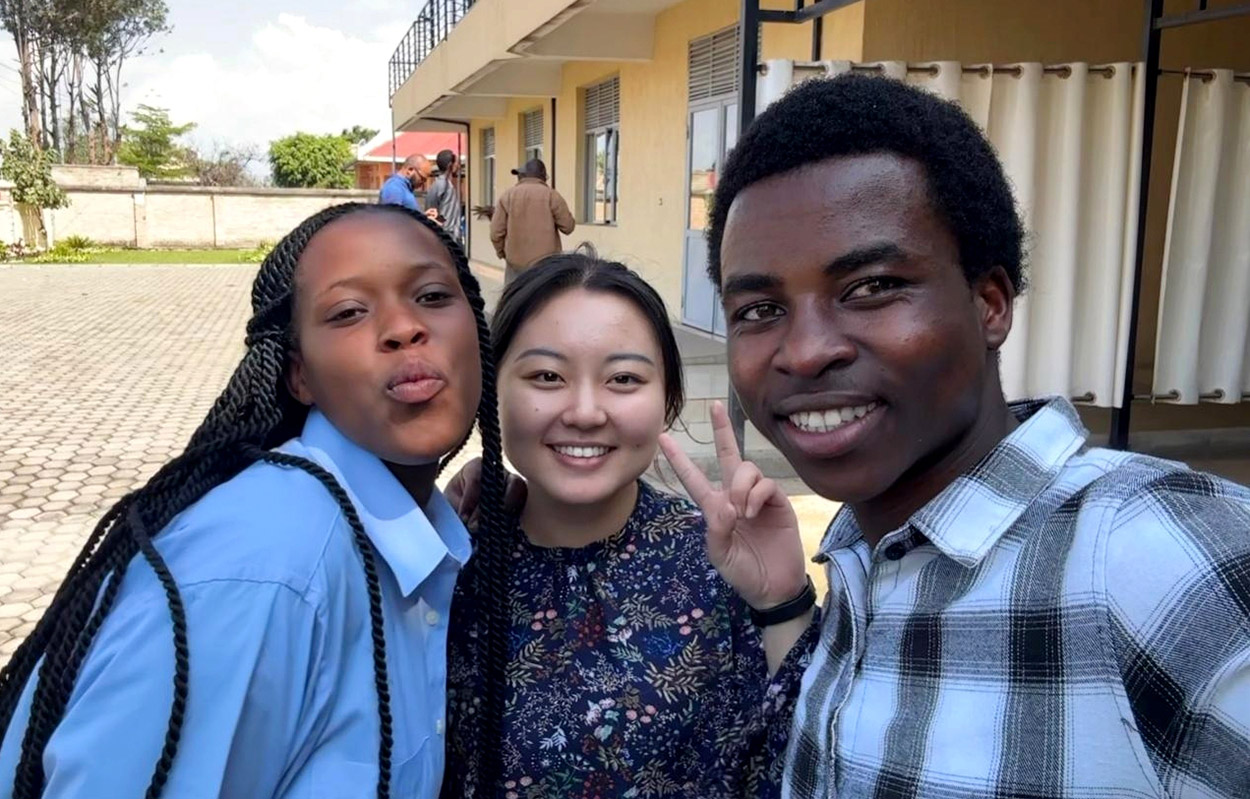Number of Chinese working in organization more than doubles in past 15 years

Zhang Wei, a graduate student studying horticulture at Shanghai Jiao Tong University, is one of a growing number of Chinese young people turning toward the United Nations, driven by a mix of idealism, professional ambition and China's expanding global role.
At the age of 24, Zhang made a choice that defied convention. Instead of completing the final year of her master's studies and heading straight into the job market after completing graduate studies in Shanghai, she took a one-year sabbatical and boarded a plane to Rwanda in eastern Central Africa.
There, as an agribusiness intern at the Food and Agriculture Organization of the UN, she set herself on the path toward a once-unthinkable career.
"Agriculture wasn't exactly a conscious choice after the college entrance exam; I sort of ended up majoring in it. But as I studied and gained more exposure, I came to realize how vital agriculture is to human livelihoods. That awareness led me to start thinking about the career possibilities, and the heights one could reach with an agriculture degree," Zhang said of her journey to becoming an intern at the FAO's Rwanda Representation.
To realize her dream, Zhang focused on honing her English skills and participating in international organization exchange programs. In September last year, her perseverance finally paid off. She secured an FAO internship in Rwanda through a collaborative program between her university and the UN agency.
"I don't remember precisely when I first heard about the FAO, but it struck me as an amazing opportunity. I truly connect with the UN's core values. To me, the UN is all about building a better future for humanity, transcending political systems and cultures, striving for a more prosperous, just and sustainable world. That's the kind of environment I wanted to be a part of.
"Serving at the FAO enables me to use my skills and knowledge in a multicultural, professional setting, allowing me to contribute to something bigger and more impactful," said Zhang.
This year marks the 80th anniversary of the founding of the United Nations and the 54th year since the People's Republic of China resumed its lawful seat in the UN.
The UN is no longer a faraway concept for many young people in China, but a familiar and aspirational place to build a career, turning a once-exclusive dream into a realistic possibility.
The numbers bear this out. According to UN data, the number of Chinese citizens working in the system has more than doubled over the past 15 years, from 794 in 2009 to 1,664 in 2024. This growth also reflects China's deeper integration into multilateral governance.

New pathways
The pathway to a UN career for Chinese was quite different not long ago.
Li Wen, chief of mission in China for the International Organization for Migration, recalled that in the late 1990s, linguistic roles were the primary entry point for most Chinese staff.
"At that time, the dominant channel was through language, translating and editing Chinese documents," she said.
Li's connection with the UN dates back to her university days. In 1995, as a postgraduate student at the China Foreign Affairs University, she participated in China's first Model United Nations conference, representing Afghanistan in a session on women's issues. Though her understanding of the UN was nascent, it ignited a desire to be involved.
After graduation, Li joined the Foreign Ministry's Department of International Organizations and Conferences, experiencing life as a representative of the Chinese government at the UN. In 2014, she made history as the first employee seconded by the Chinese government to the Office of the President of the UN General Assembly.
"The president of the General Assembly often has limited funding, and the UN-provided staff may not be sufficient, so they seek personnel seconded from different national governments. Starting in 2014, the Chinese government decided to send staff to the UN General Assembly President's Office," she said.
"I remember arriving at the UN not knowing what was expected of me. Everything was learned on the job. I worked in New York until the end of 2016, and then had the opportunity to join the IOM. Because I enjoyed working in the UN system, I transitioned to IOM and became a formal UN staff member," Li said.
She recalled that in 2017, when she joined the IOM headquarters in Geneva, she was the only Chinese national working there. Now, more and more Chinese professionals are joining the UN across various fields.
Classroom for ambitions
This rising interest is also palpable on university campuses. Zhu Jiejin, deputy director of Fudan University's Center for the Study of the UN and International Organizations, has witnessed the surge firsthand.
He offers a popular course that brings professionals from international organizations into the classroom. When the course was launched in 2020, around 600 students applied for 200 spots. Last year, more than 1,500 students sought admission, forcing him to cap attendance at 300.
According to Zhu, graduates from his international organizations course have already joined the ranks of the UN.
"There was one student whose choice deeply moved me. A former student of mine now works at the United Nations Population Fund. Most of her work there involves humanitarian relief efforts, which are quite dangerous, as they often take place in conflict zones and war-torn areas. Without a spirit of sacrifice or a deep sense of compassion, it would be very difficult to carry out such work," said Zhu.
"For China, it's a positive development that more young Chinese have the will and opportunity to work in international organizations like the UN, as it better reflects China's commitment to peaceful development, cooperation and win-win collaboration," he said.
Liu Tiewa, dean of the Country and Area Studies Academy at Beijing Foreign Studies University, sees the trend as part of a larger evolution. "As China becomes more integrated into the global community, a growing number of young people are considering careers in international organizations as a key professional path," she said.
"The growing interest among Chinese youth in pursuing careers at the United Nations signals a shift in their professional aspirations and a stronger sense of global citizenship. Today's younger generation brings more specialized expertise and a broader international perspective. They also have a deeper and more personal understanding of China's development, its elevated global standing, and its expanding influence."
She also pointed to China's increased financial contributions to the UN, with China now the second-largest contributor to the regular budget. "This reflects China's willingness to take on greater international responsibilities and also objectively requires China to provide more professionals to international organizations," Liu said.

From learning to sharing
Beyond its financial and personnel contributions, China is increasingly offering policy wisdom and practical experience to the UN rooted in its unique development path.
During the "Shanghai Cooperation Organization Plus" Meeting on Sept 1, China proposed the Global Governance Initiative, calling on nations to uphold sovereign equality, abide by the international rule of law, practice multilateralism, advocate a people-centered approach and focus on taking concrete actions.
UN Secretary-General Antonio Guterres, who was in China to attend the SCO Summit 2025, welcomed the initiative and the fact that it is anchored in multilateralism.
He also spoke highly of the role that China plays in supporting the work of the UN. In his meeting with President Xi Jinping on Aug 30, Guterres said that China has made significant contributions to safeguarding international law and ensuring the international rule of law, and has been a cornerstone of multilateralism.
"In the early 1980s, the role that the UN played in China was completely different from what it is today. Decades ago, China was largely a recipient of UN aid and expertise. Today, China has become highly advanced in many fields," Li of the IOM said, citing the example of China's advanced experience in immigration management.
Li noted that during her visits to Shanghai and Guangzhou, Guangdong province, she was impressed by their excellent work in integrating foreign immigrants.
Shanghai, for instance, has set up one-stop service centers where foreigners can handle all their paperwork in a single visit. In Guangzhou, local authorities have engaged African businesspeople as community volunteers, successfully leveraging their cultural familiarity to mediate disputes within the African community.
"Many developing countries also need China's technologies like automated border control and e-visas at airports to address migration issues," Li said.
Zhang said that during her internship in Rwanda, she witnessed China's growing role in international cooperation. "China is engaged in agricultural South-South and triangular cooperation in many African countries. For example, China's fish-rice symbiosis project in Uganda is helping to increase local agricultural output," she said.
"In Rwanda, there is a Juncao technology center where Chinese experts are teaching local farmers how to cultivate Juncao mushrooms. They then process the mushrooms into various products, increasing their added value. It has been very beneficial to the local economy," Zhang said.
During her 11-month internship, Zhang has been proactively working to promote a proposal that leverages Chinese expertise in Rwanda. So far, she has also initiated a project proposal that has already received endorsement from the Chinese Embassy in Rwanda.
"The next step is to formally submit the relevant documents. Bit by bit, I look forward to the day when this proposal can bring tangible improvements to the livelihoods of smallholder farmers in Rwanda and strengthen the country's agricultural resilience," she said. "To me, this is what growth means — my personal journey of progress, echoing China's broader path of development."
Contact the writer at yangran1@chinadaily.com.cn


